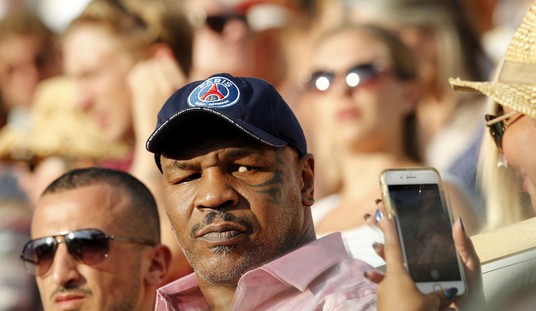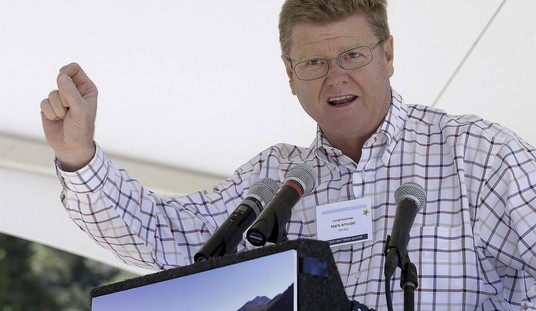Stephen Monsma is a bright intellectual light, and he also appears to be a confessing Christian. He recently wrote a piece for The Center for Public Justice titled, “Neither a Christian Nor a Secular Nation,” in which he proposed that our nation needs to adopt principled pluralism as a guiding concept. His conceptual model is based on recent Michigan law that will authorize faith-based adoption agencies to place children with couples selected on the basis of each agency’s religiously shaped views about marriage and family, despite the latest Supreme Court decision authorizing the expansion of the legal definition of marriage to include same-sex couples.
I certainly see his point. The current state of public discourse in the USA is more like gang warfare than reasoned discussion. Lawmakers and citizens alike struggle to cope with the clashes in which one side declares “Too many Christians, not enough lions,” and the other side says, “I can’t be nice to Episcopalians, because they serve Satan.” There is no room for respectfully going separate ways when the act of declining to participate in anything is seen as a campaign to force one’s views on others. If you invite me to join you for dinner on Friday evening, and I decline because of a previous commitment, I am not trying to force you to do what I plan to do on Friday evening. Yet in today’s public forum, that is exactly what is alleged when a Christian photographer declines a request to provide wedding portraits of a gay couple.
I found the world described by Monsma very appealing. At a high level, it seems like the right vision, the vision the colonial patriots had when they declared independence and pointed out that liberty was a God-given right, the vision the authors of the Constitution had when they protected the “free exercise” of religion in the First Amendment. In Monsma’s nation, secularists, Christians, Hindus and Baha’i do what each thinks is right and do not bother each other. Laws would be written that specify that each may act according to conscience informed by personal principles. It sounds very peaceful.
Yet as much as I admire that vision, I cannot see it working out peacefully in real life.
Take the issue of abortion, for example.
Secular thinkers consider an abortion to be a simple decision for a woman to make if she does not want to carry a pregnancy to term. They rightly point out that allowing the woman to have an abortion without any hassle does not obligate anybody else to have an abortion. In Monsma’s world, that would work. In the world of principled pluralism secularists would be happy with abortion available for those who want it, and Christians would be happy that none of them was compelled to have an abortion.
Mosma’s principled pluralism lasts until some citizens become concerned that the “products” of abortion look more and more like real babies. Then it isn’t a choice; it’s a baby. Principled pluralism lasts until parents who are unhappy with the “product” of a birth, because the child is sickly, ugly, or cranky, want to have a post-birth abortion. When does the act cease to be an abortion and become murder? Can there possibly be an assortment of views and practices on that question?
Even without those issues, as soon as there is a law that compels universal health insurance, and as soon as that law defines abortion as a preventive health measure, one of a long list of preventive health measures that must be part of every insurance policy, then suddenly, abortion is no longer an issue where everyone can go separate ways. Suddenly, everyone in the nation must pay for abortions, whether or not they themselves even consider abortion a valid moral choice. If the insurance company bears the costs, then the premiums of the compelled insureds pay for the abortions. If the government steps in and reimburses the insurance company, then taxpayers pay for the abortions. In other words, everybody pays. How is that pluralism?
Further, as soon as the national education standards declare that every ten-year-old must be taught about birth control and must be told that when prevention fails, the cure is abortion, then suddenly, parents no longer control the way their children learn about it, and abortion is not an issue where each family goes its own way. When the laws and regulations authorize school counselors to advise pregnant teens to get abortions and further authorize school officials both to hand out abortifacient drugs and to deliver young girls to abortion clinics, all without any parental involvement, then abortion is not an issue on which each individual is free to live according to his own conscience. It might actually be administratively possible for the schools to have procedures that protect each child according to that child’s religious affiliation, but it would be an administrative nightmare, and it isn’t hard to see that law or no law, principled pluralism would not likely hold sway in the schools.
Also, when it becomes known that abortion providers are butchering the “products” of abortion and haggling with medical research facilities over the appropriate price for specific parts, abortion is no longer an issue isolated to private conscience. Buying and selling human body parts is not an issue specific to abortion, and the conversation necessarily comes back to the issue of the definition of a human body and the application of conscience in public policy. Can a law be written that defines a human being and simultaneously satisfies both Christians and non-Christians? If one or the other feels that the very definition tramples on personal conscience, then what?
So many issues hinge on definitions. Person. Marriage. Murder. The federal dictionary is full of definitions, and many of them affect matters of personal conscience.
In Monsma’s world, nobody is compelled to live and act on somebody else’s personal principles, whether those principles derive from reason (secularist) or authority (Christian). In the real world, it is not so easy to disentangle the issues.
I must add that, even though I admire Monsma’s vision, I still feel compelled both to be sure that Christian perspectives are heard during the discussion of all issues and also to advocate strongly for those views to prevail. He appears to believe that all parties could dispassionately lay out their views and then be happy as each view is accommodated. As I pointed out above, there are some issues where one choice and only one will be the law. There will be legal situations in which the most generous and respectful people in the world will nevertheless find that the law cannot include room for variation. I am driven by my commitment to Christ and his kingdom to believe that I must be a voice for my best understanding of Christ’s teaching. If I lose, I lose, but I must speak for the principles I believe to be right. I think every citizen must do that. That is the reason we have freedom of speech and the power of the vote.
I further believe that in this imperfect world, I will inevitably be faced with moral choices wrapped up in legal problems. I still believe that the First Amendment to the Constitution is important and powerful. I still believe that it protects the actual exercise of faith, not just the rituals of faith. When my personal values shaped by my faith in Christ put me in conflict with the law of the land, I will need to decide what course to take. If the First Amendment does not protect my choice, I still must do what Christ commands. In this world of time and space, I anticipate that the realities will put some of us at odds with our governments, and I pray for the personal integrity never to deny Christ by my actions when that happens.
Monsma is absolutely right about one thing. Citizens need to respect each other, no matter what views are being discussed. Yet even that statement is problematic. In current discussions, it is easy to say that you will not engage in name-calling or vile language. You can be ever so principled. Yet personalities cannot really be submerged in such conversations. Personalities of candidates and elected officials can be so abrasive or even abusive that it is hard to stop looking at the personality problem and keep the focus on the subject of the dispute. To do so requires not only a commitment to respect as a moderating factor but also a great deal of personal character and self-control. In short, Monsma envisions a world in which adults act like adults rather than children.
Monsma’s world vision is a pleasant one. Principled pluralism sounds like a good way for people to differ respectfully. Nevertheless, living up to my nickname “Ms. Reality”, I must observe that as long as humans are born with sinful human nature, I do not expect that vision to materialize. I think that is why the US Constitution is such a miracle. It envisions precisely the conflicts we face today, and it includes the mechanism to achieve respectful expression and exercise of differing principles. The Constitution provides a good way to handle the decisions. I do think we should discuss those decisions without summoning lions.













Join the conversation as a VIP Member